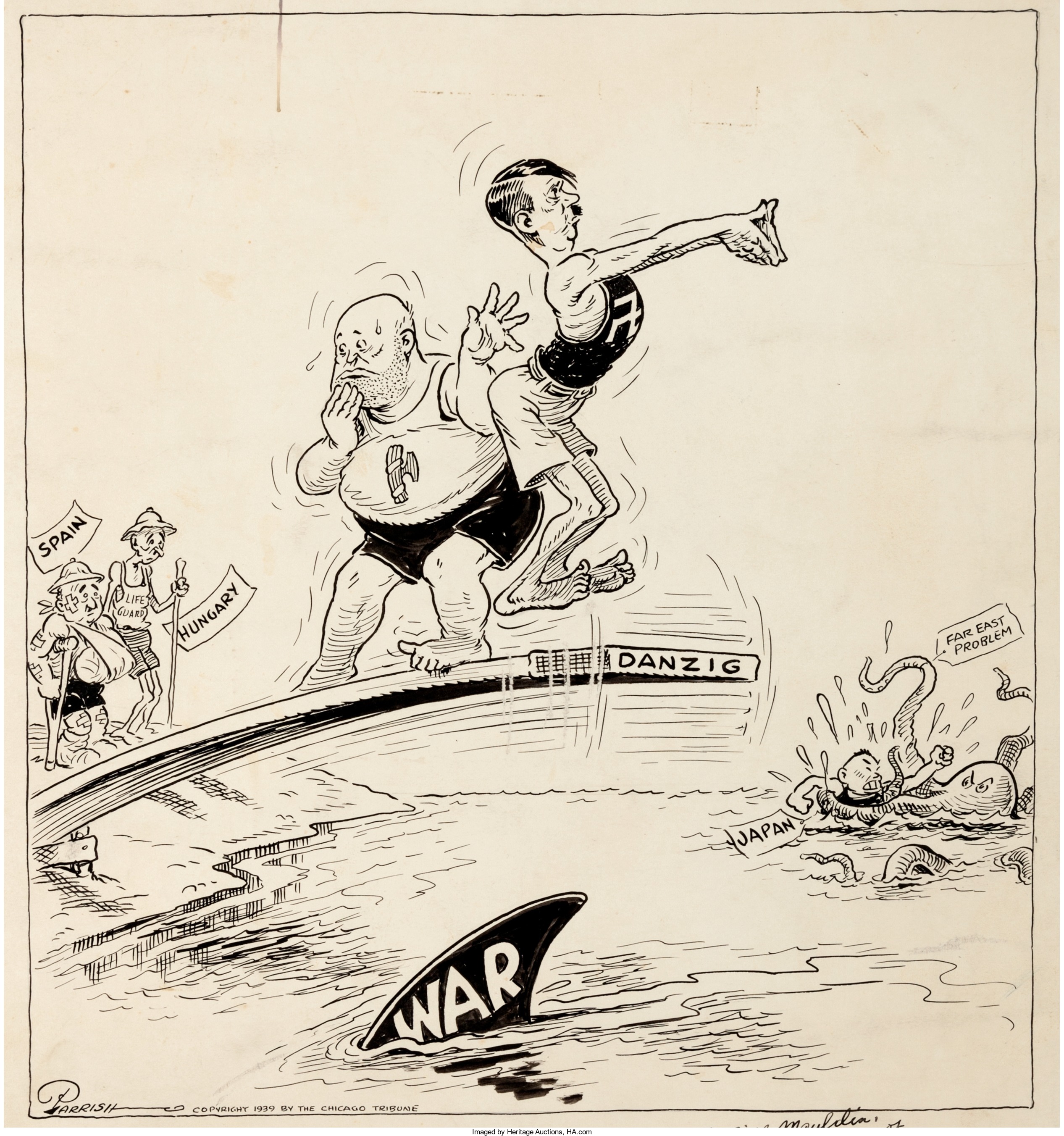
By Jim O’Neal
In September 1938, British Prime Minister Neville Chamberlain returned from Munich and infamously declared he had an assurance for “Peace for our time.” The phrase was an optimistic borrowing from a versicle in the Anglican service of evensong: “Give peace in our time, O Lord, because there is none other that fighteth for us, but only Thou, O God.”
Chamberlain was wrong on several levels since Germany (Adolf Hitler) had no intention of granting peace to Britain and its European neighbors. Secondly, Britain had a true leader-fighter in Winston Churchill, who had warned the British Parliament in 1935 of “Germany arming at breakneck speed, England lost in a pacifist dream, France corrupt and torn by dissension, America remote and indifferent.” A year later, this was no longer a rhetorical flourish, but a dangerous fact as Britain would soon be at war.
From the largest cities to the smallest villages, citizens prepared their civil defenses: air-raid shelters designated, blackout curtains for homes sewn, gas masks delivered, and fire marshals named. Trading cards in cigarette packs showing film stars and athletes were replaced with a series of 48 “Air-Raid Precautions.” Plans were made to evacuate hundreds of thousands of people from large cities to remote rural areas.
Major hospitals were organized into emergency medical facilities. A blood transfusion system was set-up, with widespread training under the Red Cross First Aid course. Prominently missing in all this was the critical supply of penicillin … for one simple reason: It did not exist. Neither did any other vital drug to treat wounds and other infectious diseases common to war casualties.
History credits the discovery of penicillin many years earlier (1928) to Sir Alexander Fleming at St. Mary’s Hospital in London after a serendipitous encounter with a mold growing in an untended Petri dish. However, he was such a poor communicator and orator that his work was largely ignored. Plus, he found the substance “too frustrating and difficult to work with” and abandoned it.
Fortunately, a small group at Oxford recognized the substance’s potential as a “miracle drug,” although they did not have the resources to manufacture commercial quantities until grants from the Rockefeller Foundation spurred the installation of small production sites.
Even more astonishing was that the first major application occurred in November 1942 when a fire at Boston’s Cocoanut Grove nightclub killed 492 people. Several hundred people survived life-threatening burns after treatment with a penicillin variant. The fire started after a club employee changed a light bulb in a darkened area, lighting a match to see what he was doing. With Freon in short supply due to the war, a highly flammable gas (methyl chloride) was being used as a substitute. Boom … the fire engulfed the entire building.
Of course, tens of millions of people were subsequently saved on many battlefields and in hospitals and emergency rooms all over the world. The worry now is that that through overuse, bacteria have developed resistance strategies, leading to new “super bugs.” Survival of the fittest seems to be an immutable law of nature.
Remember to eat your spinach and wash your hands!
 Intelligent Collector blogger JIM O’NEAL is an avid collector and history buff. He is president and CEO of Frito-Lay International [retired] and earlier served as chairman and CEO of PepsiCo Restaurants International [KFC Pizza Hut and Taco Bell].
Intelligent Collector blogger JIM O’NEAL is an avid collector and history buff. He is president and CEO of Frito-Lay International [retired] and earlier served as chairman and CEO of PepsiCo Restaurants International [KFC Pizza Hut and Taco Bell].
